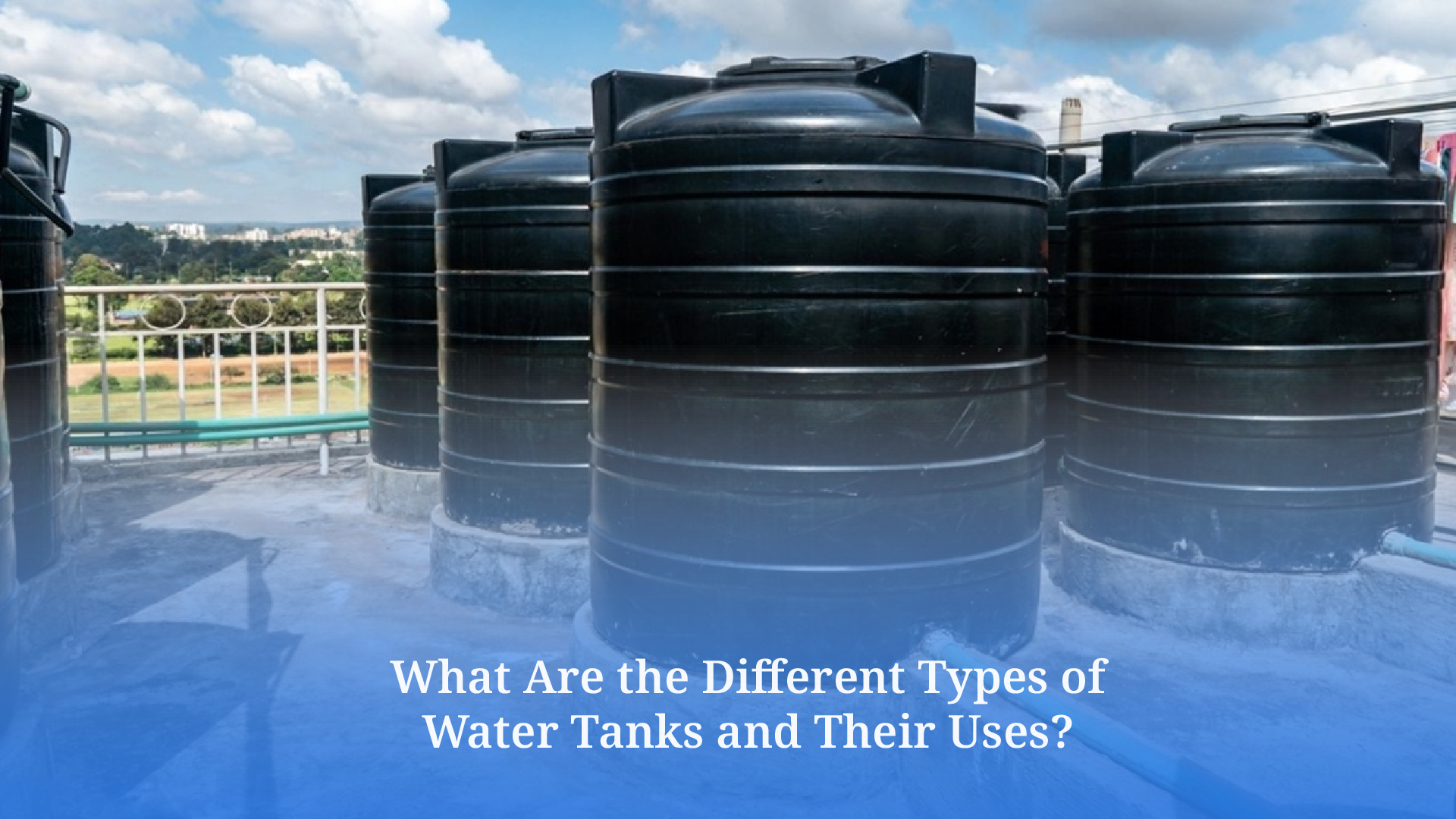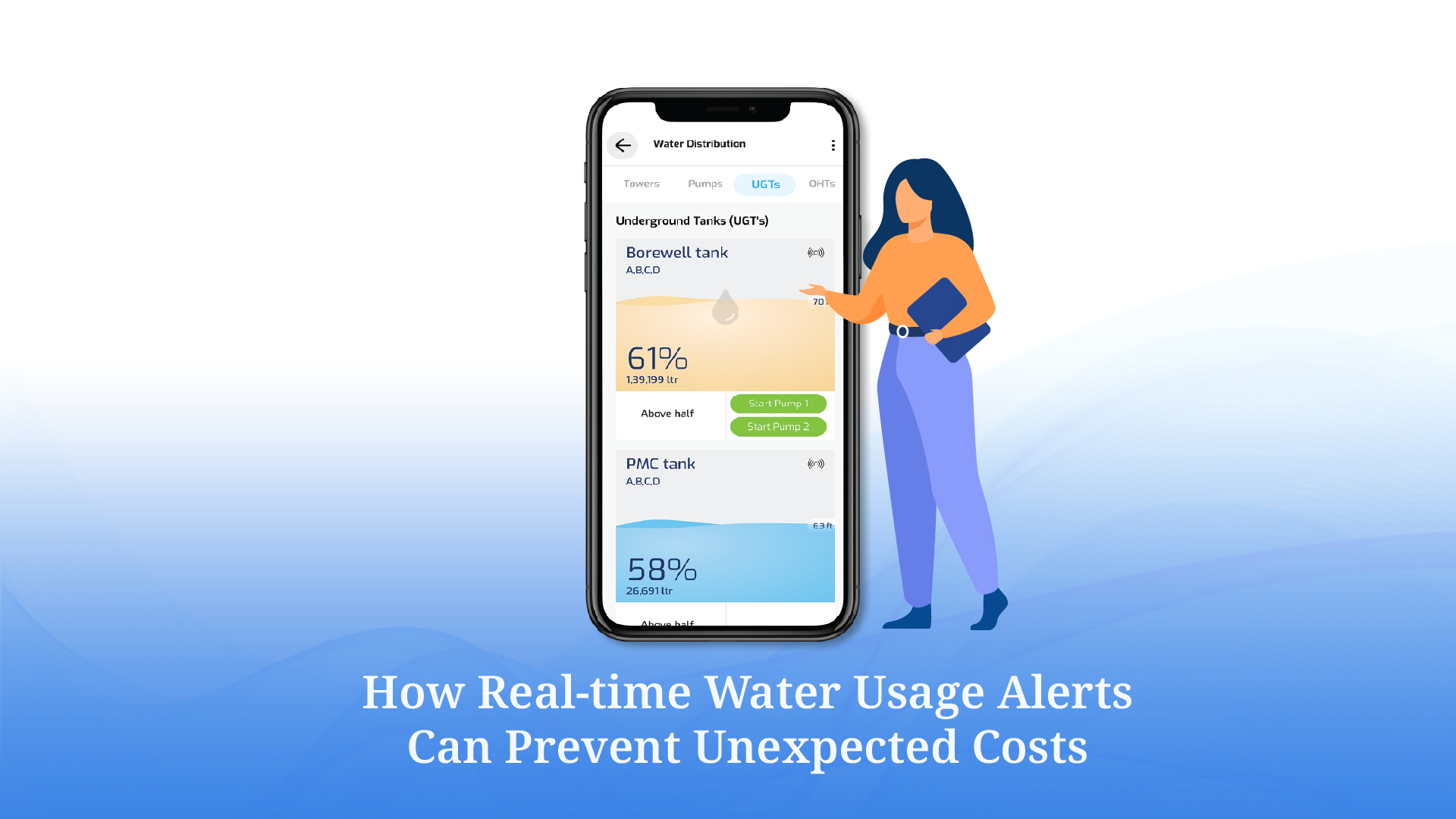What Are the Different Types of Water Tanks and Their Uses?

In today’s world, where water conservation is a pressing concern, efficient storage solutions are pivotal in bridging the gap between supply and demand. Whether for households, industries, or agricultural needs, water tanks serve as the backbone of sustainable water management. This guide explores what are the different types of water tanks and how they address varied storage challenges, ensuring every drop counts
The Essential Role of Water Tanks in Modern Living
Water tanks ensure life goes on smoothly, even when access to water becomes challenging. Let’s take a closer look at the key ways they make a difference in everyday life:
-
Residential Water Storage
Imagine waking up one morning to find no water in your taps—it’s a frustrating thought, isn’t it? Water tanks save us from such scenarios by providing a consistent backup supply.
-
Agricultural Applications
Agriculture often depends on water availability, and tanks ensure farmers don’t have to worry about unpredictable rain or dry spells. These tanks store water for irrigation, keeping crops healthy and livestock hydrated.
-
Industrial Water Management
Industries like manufacturing or food processing rely heavily on water for various operations. Water tanks help these industries store large amounts of water for production, cleaning, or cooling systems.
-
Rainwater Harvesting
Ever thought about how much water goes to waste when it rains? Tanks designed for rainwater harvesting let you collect and store rainwater for later use.


Different Types of Water Storage Tanks
Choosing the right water tank depends on your location and water requirements. Let’s explore some of the most common types:
-
Overhead Water Tanks
Overhead tanks are installed on rooftops to utilise gravity for water distribution. They are common in residential and commercial buildings. These tanks ensure a steady water flow even during power outages, making them an everyday essential.
-
Underground Water Tanks
Designed for space efficiency and aesthetics, underground tanks are installed below the surface. They are often used for rainwater harvesting or as emergency water reserves. Their robust construction helps them withstand pressure from the surrounding soil.
-
Loft Tanks
Loft tanks are compact storage solutions installed indoors, typically in kitchens or bathrooms. These tanks are suitable for storing smaller amounts of water, often for secondary usage like washing or cleaning. Their size and design make them ideal for households with limited space.
Unique Water Storage Tanks for Specific Applications
Some water tanks are crafted to address unique needs. Let’s take a closer look at some of the following:
-
Rainwater Harvesting Tanks
These tanks come with filters that remove debris and impurities. This helps keep the water clean and safe for non-potable uses. The design of these tanks usually features large capacities. They also have connections to existing plumbing systems, making integration easy.
-
Insulated Water Tanks
Insulated tanks are ideal for areas with extreme weather. They help keep water at a steady temperature. In hot climates, they keep water cool. In colder areas, they prevent the water from freezing. These tanks typically have UV-stabilised polyethene and multi-layered construction (3 to 5 layers) to regulate temperature effectively.
-
Chemical Storage Tanks
Storing chemicals safely requires a specialised tank. These tanks are built to handle hazardous substances. They are made from materials like reinforced plastic or fibreglass. These materials resist chemical reactions and prevent leaks. They are spotted in industries such as wastewater treatment, petroleum storage, and food processing, in addition to pharmaceuticals.
A Complete Guide to Choosing the Right Water Tank
When selecting a water tank, keep these key factors in mind:
- Estimate daily water usage to decide on the tank capacity.
- Choose between outdoor, indoor, or underground tanks based on available space.
- Ensure the tank fits your installation area, leaving room for maintenance.
- Verify the foundation can bear the tank’s weight.
- Follow inspection guidelines to maximise the tank’s lifespan.
Planet Smart City’s Role in Revolutionising Water Storage for Housing Societies
Water storage solutions have evolved significantly. At Planet Smart City, we take this a step further with Planet SIM (Smart Infrastructure Management). Here’s how we help communities optimise their water storage and usage:
-
Smart Sensors
With Planet SIM, we empower societies to track water usage in real-time using smart sensors. These sensors detect leaks, monitor consumption, and prevent wastage. In a Pune housing society, Planet SIM detected a significant underground pipe burst, saving approximately 300,000 litres of drinking water per day.
-
Actionable Insights
At Planet Smart City, we leverage data analytics to provide housing societies with actionable insights into water usage trends. By understanding consumption patterns, societies can set achievable conservation goals. Our AIoT-enabled infrastructure helps automate and optimise operations, reportedly reducing monthly utility expenses by up to 15%.
-
Seamless Integration
Operational tanks, connected through Planet SIM, transmit real-time water level data to the app, enabling communities to plan refills proactively. This approach prevents overflows, ensures consistent availability, and conserves resources. In Pune, our solutions have helped manage over 1 billion litres of water across 15,000 households. This proves how data-driven insights can make a measurable impact.
With innovations like Planet SIM and integrated water storage solutions, we are redefining how housing societies manage and conserve water. Are you ready to take the next step? Together, let’s revolutionise water management, one community at a time.
Popular Searches
pre-scheduling tanker management system | sustainable water management | problems faced by society | how to repair water tank leakage | reasons for water shortage | how to identify leakage in pipes | water level indicator for water tank | energy efficient buildings | how to measure water level in tank | water problems in pune | intelligent lighting system




